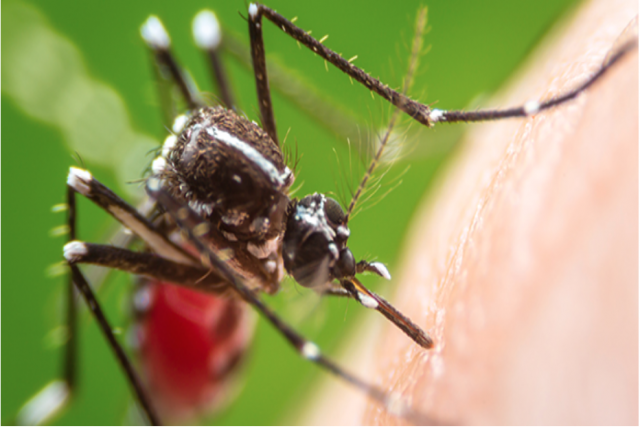DARPA Trains its Guns on Mosquitoes

Defense Advanced Research Projects Agency (DARPA) Researchers, under the ReVector program aim to use modulated human skin microbiomes to prevent biting by common disease vector.
A report by DARPA stated that ReVector seeks to develop topical formulations that could be applied shortly before a mission with minimal equipment or training, and last for at least two weeks without reapplication, offering improved, sustained protection against disease vectors. The program is now entering its second phase with performers from Stanford University.
“Phase 1 of the program focused on identifying microbial or metabolic targets that produce molecules relevant to mosquito attraction and feeding, and designing microbiome alterations to reduce said attraction,” DARPA quoted Dr. Linda Chrisey, ReVector program manager.
“In Phase 2, the team plans to advance to testing in animal models and more complex microbiome communities.” Dr.Chrisey added.
Mosquitoes are vectors of a number of diseases, and are responsible for the majority of insect bites worldwide.The insects are attracted to humans, in part, by chemicals emitted in human breath. It is the heat and volatile molecules from the human skin micro biome, however, that direct mosquitoes to specific feeding sites on the body. The ReVector program aims to precisely, safely, and efficiently reduce mosquito attraction and biting, and, subsequently, to help maintain the health of military personnel operating in disease-endemic regions. In its first phase, ReVector performers developed technologies to modify human skin microbes and modulate the volatiles that these micro biomes produce. The teams tested petri dish formulations of their modified microbe communities with three mosquito types to gauge changes in attraction.













